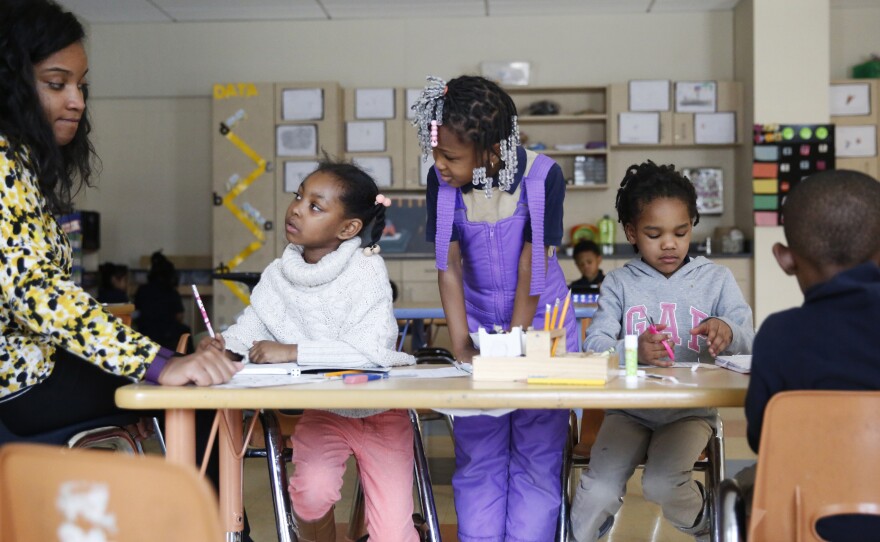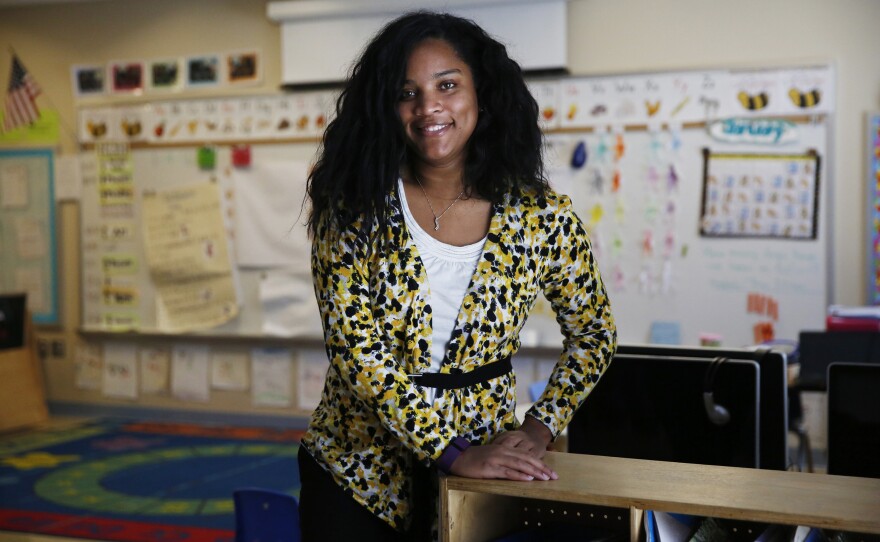
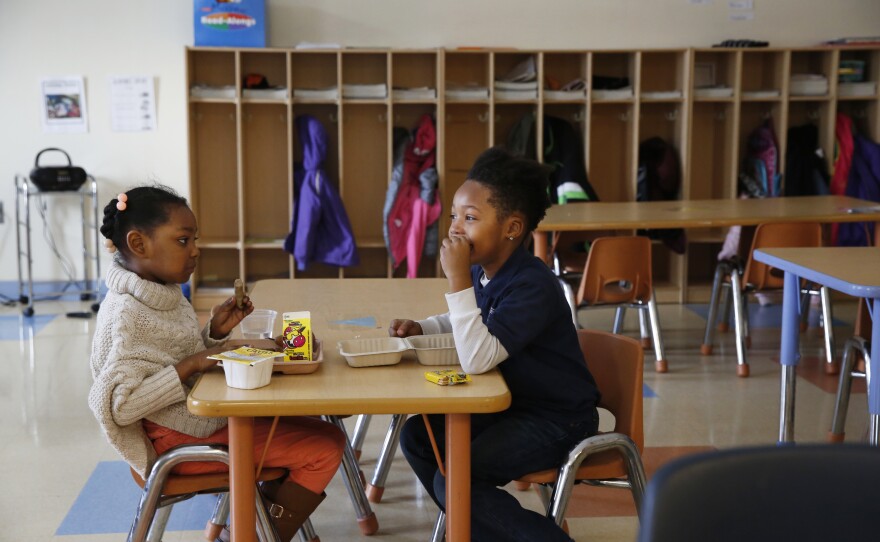
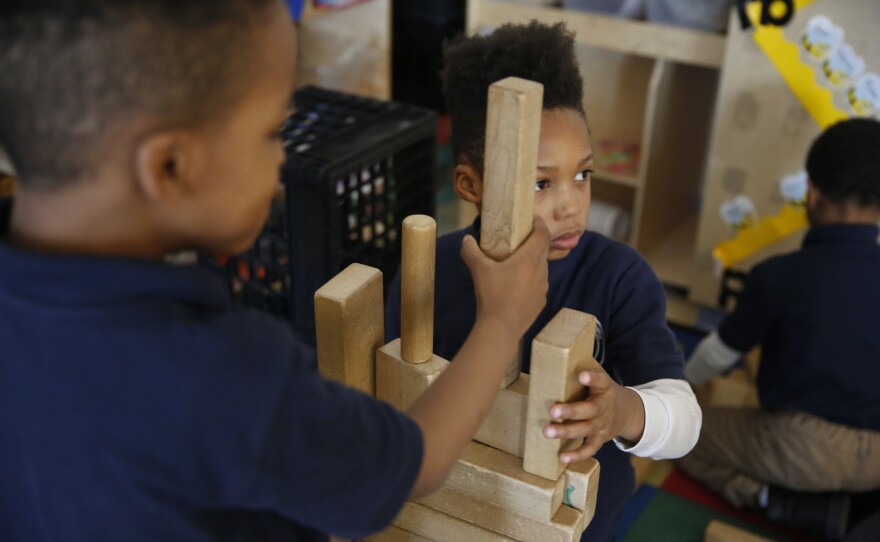
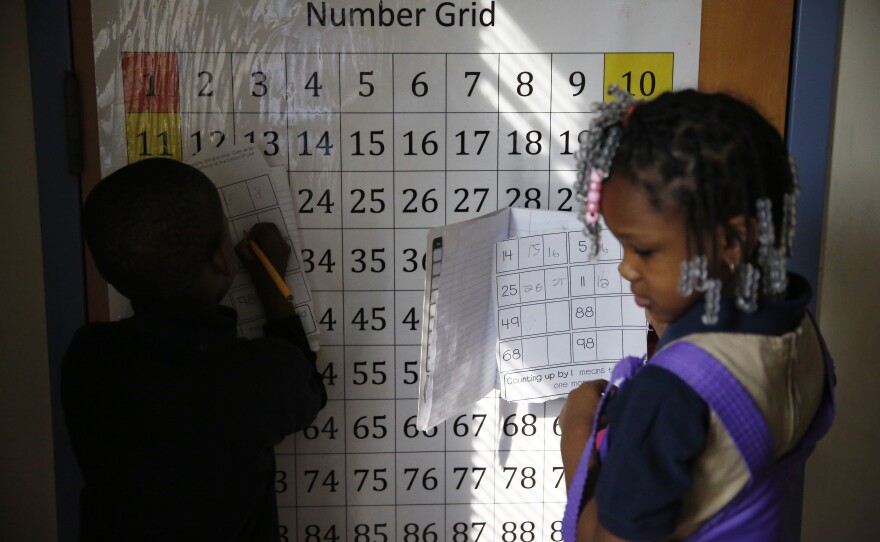
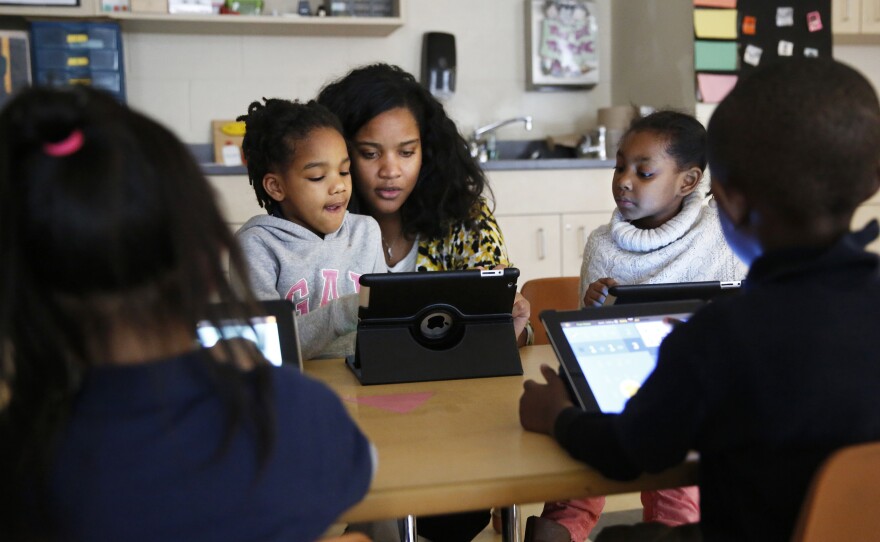
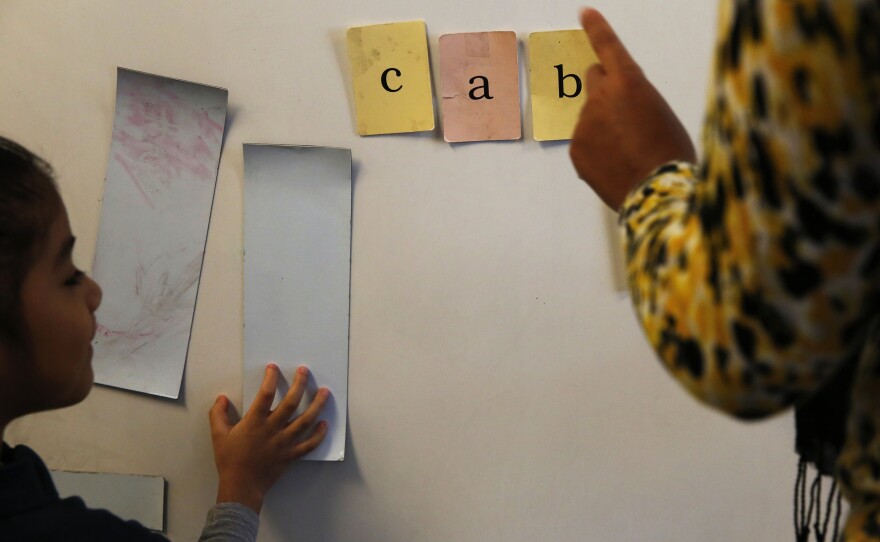
When you enter Marissa McGee's classroom, the first thing you notice is her connection with her students. They're delighted by her enthusiasm, they pick up on her sarcasm, and they often double over with giggles when she makes a joke.
And this is kindergarten. So McGee's students — her audience — are 5-year-olds.
"They're easy to please," she says, laughing. "I'm not that funny. I wouldn't even consider myself funny at all."
This rapport is how Marissa McGee works to shape these kindergartners into thoughtful, educated adults.
Her classroom at Walker-Jones Education Campus, not far from the U.S. Capitol in Washington, D.C., has been heralded as a room to watch by D.C.'s public schools. Last year, teachers from all over the city visited McGee's class to observe her teaching as part of their professional development.
So, she let us in on some of her classroom tips:
Character is just as important as academics.
"Obviously, I think it's important for them to learn to read and do math and all of the other academic things that they need," she says. "But I'd say character is just as important. I'm helping them be better people when they leave by the end of the year.
"Sometimes we just have to stop and talk about things that aren't in the curriculum and aren't on the lesson plan," she says. And her students eat it up. "When we give each other compliments and are compassionate," she says, "their little faces just brighten up with smiles."
Get your kids on board.
"Basically, I let them play teacher," she says. A recent example: "We were introducing math journals where they got to cut and paste some things in a journal, and some student came over, 'Ms. McGee can I show so and so how to do this?' And I'm like, 'Sure! You go right ahead.' "
"It helps me because students are doing the front loading," she says, "so when someone comes to me for help, we're reviewing and can move faster."
Remember that they're 5.
"These kids are 5 years old and still figuring things out," McGee says. "So they might not know that it's not appropriate to just snatch something from another student.
"Instead of reacting in that moment, I try to make it a teachable moment," she says. "I say, OK, this is what we should do. We can use our words and sort of talk it out. And I've noticed they're starting to adopt that."
Be flexible.
"Each of my students have their own pace, so you can't expect them all to pick up on everything right away. You just have to go with the flow and recognize that everyone is moving."
Translation: If the lesson plan isn't working, throw it out. Or be willing to drop it.
"It's not about who finishes first, but crossing the finish line eventually, however long it takes."
Embrace the intellectual challenge.
"Some people are like, 'Oh, you teach kindergarten, that's cute.' And yeah, it's cute, but there are also challenges that come along with it."
"Trying to take something that's so simple for you and putting it in 5 or 6-year-old language is really difficult." The other day, McGee asked her kids: What method is the most reliable for solving this word problem? That got the kids stumped.
"They immediately asked me, What does 'reliable' mean? It took me a while to figure out, how can I make my explanation kid-friendly?" McGee first tried: "Reliable means something you can count on." But that didn't translate. "Some students then counted on their fingers while others reached for a number line or 10 frame."
So she rephrased: "Reliable is something that helps you."
"Things that you just know automatically, translating that, it's intellectually stimulating."
Copyright 2016 NPR. To see more, visit http://www.npr.org/.


